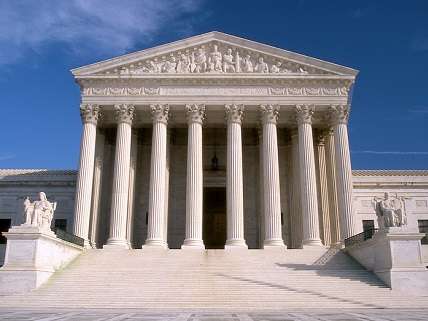Steve Chapman: Conservatives Rethink Liberty vs. Order
The authoritarian element of conservative thought persists, but it may be getting weaker.

This week, the Supreme Court made a decision that was somewhat newsworthy: upholding the right of a prison inmate to do something the prison authorities prohibit. What made it really unusual is that the decision was unanimous, with all the conservative justices signing on, and that the opinion was written by one of the most conservative, Samuel Alito.
Alito is not a staunch friend of prison reformers. In a case involving the treatment of inmates in California, he wrote scornfully, "The Constitution does not give federal judges the authority to run state penal systems. Decisions regarding state prisons have profound public safety and financial implications, and the states are generally free to make these decisions as they choose." Antonin Scalia and Clarence Thomas have been no more sympathetic, writes Steve Chapman.
Yet here they were, joining the court's liberals to tell the Arkansas Department of Corrections that it may not force a Muslim convict to shave his face. That demand, the court said, violates his freedom to practice his religion.
The case is a reminder of the everlasting tension within conservative thought between the rights of individuals and the power of the authorities, particularly in matters of public safety and order, according to Chapman.


Hide Comments (0)
Editor's Note: As of February 29, 2024, commenting privileges on reason.com posts are limited to Reason Plus subscribers. Past commenters are grandfathered in for a temporary period. Subscribe here to preserve your ability to comment. Your Reason Plus subscription also gives you an ad-free version of reason.com, along with full access to the digital edition and archives of Reason magazine. We request that comments be civil and on-topic. We do not moderate or assume any responsibility for comments, which are owned by the readers who post them. Comments do not represent the views of reason.com or Reason Foundation. We reserve the right to delete any comment and ban commenters for any reason at any time. Comments may only be edited within 5 minutes of posting. Report abuses.
Please to post comments
Mute this user?
Ban this user?
Un-ban this user?
Nuke this user?
Un-nuke this user?
Flag this comment?
Un-flag this comment?